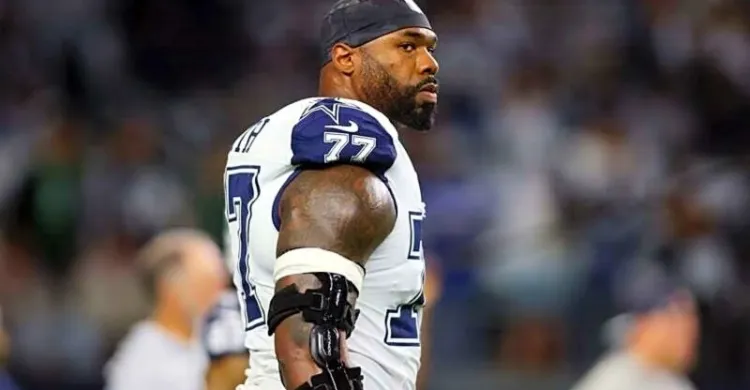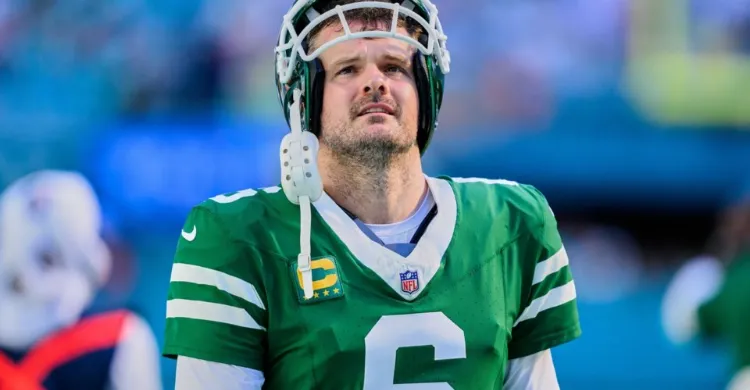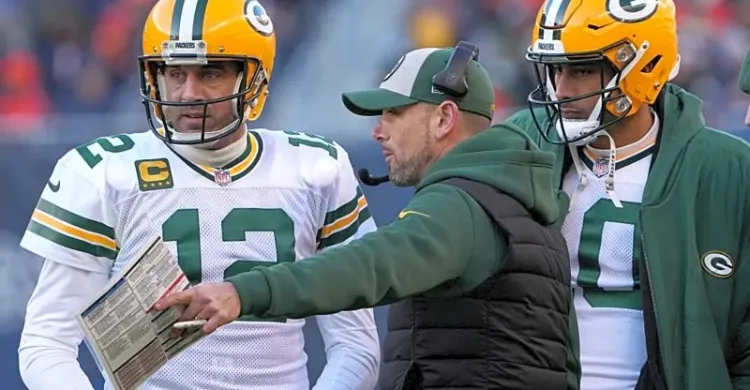George Kittle became the highest-paid tight end in NFL history when he signed a five-year, $75 million contract extension with the San Francisco 49ers in 2020, earning him $15 million annually. That benchmark didn't last long. In 2023, T.J. Hockenson surpassed Kittle's deal, signing with the Minnesota Vikings for $16.5 million per year. Then, in 2024, the Kansas City Chiefs raised the bar again, locking in Travis Kelce at $17.125 million annually.

This month, the Arizona Cardinals made Trey McBride the NFL's highest-paid tight end, signing him to a four-year, $76 million extension that averages $19 million annually, dropping Kittle to fourth on the list. Now, entering the final year of his deal, Kittle's status remains unclear.
In February, general manager John Lynch expressed a strong desire to keep Kittle in red and gold for the remainder of his career.
"We've already talked about it," Lynch said. "We want George to retire a Niner. He's one of those guys. He's a Niner through and through. And so, we want that to become a reality.
"I think the only thing on that is timing, and that's no different from what I've told George and his agent. So, [there are] some other things that we're focused on, and George is certainly there. But I think that's something we want to all see become a reality, including George."
But timing has never been the 49ers' strong suit. The team has a history of waiting too long on contract negotiations, often forcing them to pay more once the market shifts. That was the case with Deebo Samuel in 2022, when the wide receiver market exploded and drove up his price. The same happened with Brandon Aiyuk last year.
Matt Maiocco of NBC Sports Bay Area joined Bay Area radio station KNBR on Friday. While the current spotlight is on quarterback Brock Purdy's contract negotiations, Maiocco pointed to Kittle's situation as another example of poor timing by the 49ers front office.
"This is kind of following what the 49ers have done," Maiocco said. "They haven't been proactive. They haven't made a big push to sign their guys early, whether it's early in the new league year or whatever the case may be."
He argued that Kittle's price tag has only gone up since McBride's extension, and that the 49ers missed an opportunity to get ahead of the market.
"This is just the way they operate," Maiocco continued. "And I think they've already done themselves a bit of a disservice with ... the handling of George Kittle's new deal. They expressed at the—John Lynch did—expressed at the NFL Scouting Combine that they want to get George Kittle signed up, multi-year deal this offseason, with the hopes of keeping him in a Forty-Niner uniform for his entire career, and what has happened since then?
"George Kittle, who's making $15 million a year with that contract that he signed several years ago, now, the number one guy on the tight end market is Trey McBride. He just signed for $19 million, going up about $2 million over 17, which was the highest paid tight end in the league.
"So, maybe the 49ers could have got George Kittle for $18 million a year had they worked on that in February and early March. Now, it's up around $20 million, I would think. If Trey McBride is making $19 million, shouldn't George Kittle be making $20 million?"
Something similar happened with Dre Greenlaw. The 49ers were interested in re-signing the linebacker but opted to wait and see how the market shaped up. It wasn't until the Denver Broncos made a significant offer that Lynch and head coach Kyle Shanahan scrambled to respond—but by then, it was too late.
Maiocco, echoing concerns shared by many fans, questioned the 49ers' overall negotiating strategy. He pointed to organizations like the Philadelphia Eagles, which consistently take a more proactive approach to contract talks.
"I think, for the 49ers, that's one area where I think that they could be the ones that set the market rather than being the ones that have to respond to the market, and then end up paying more," Maiocco concluded.
You can listen to Maiocco's entire interview below.



